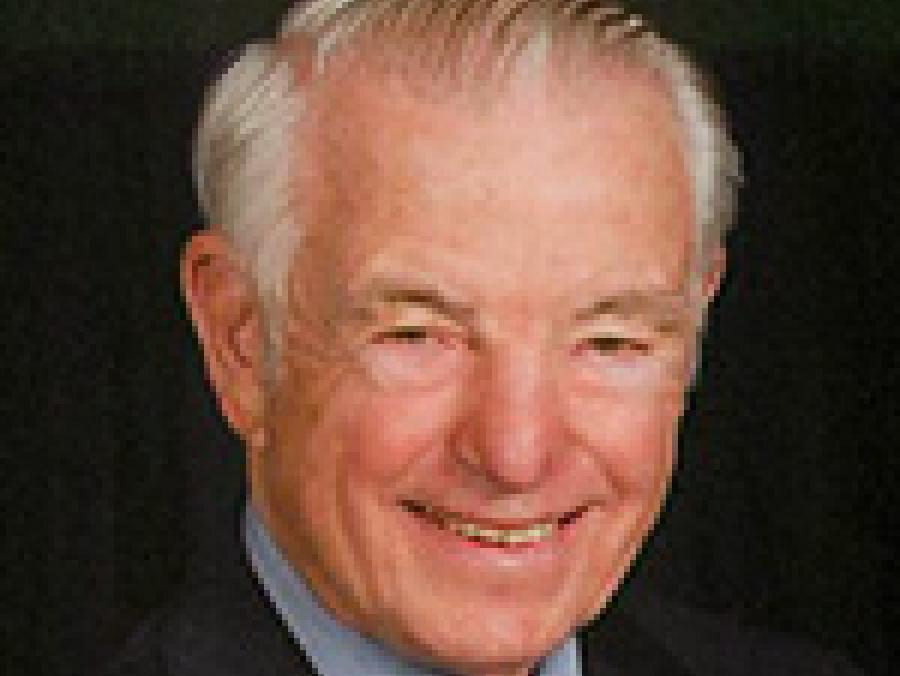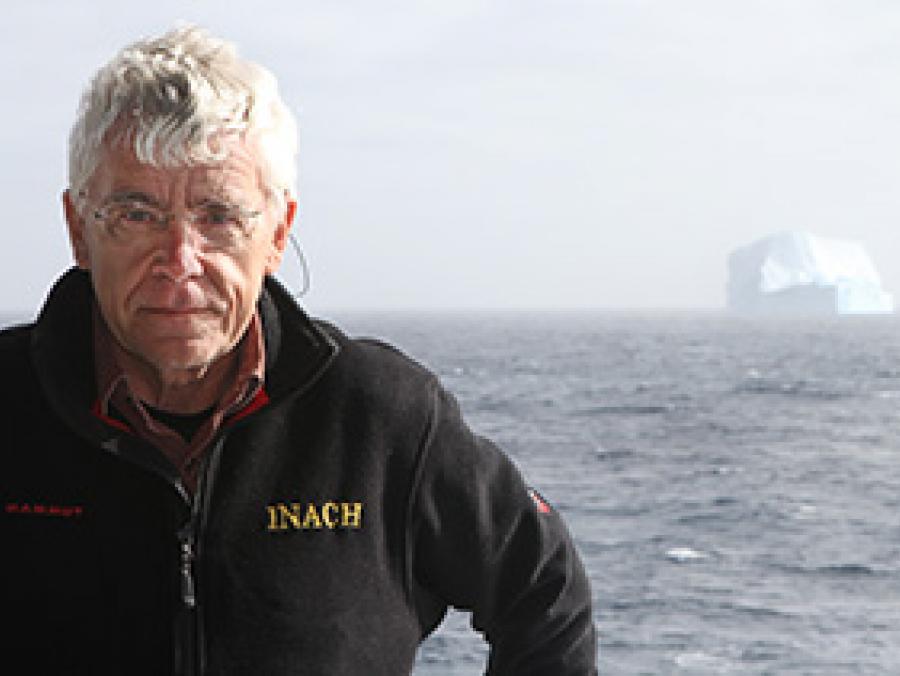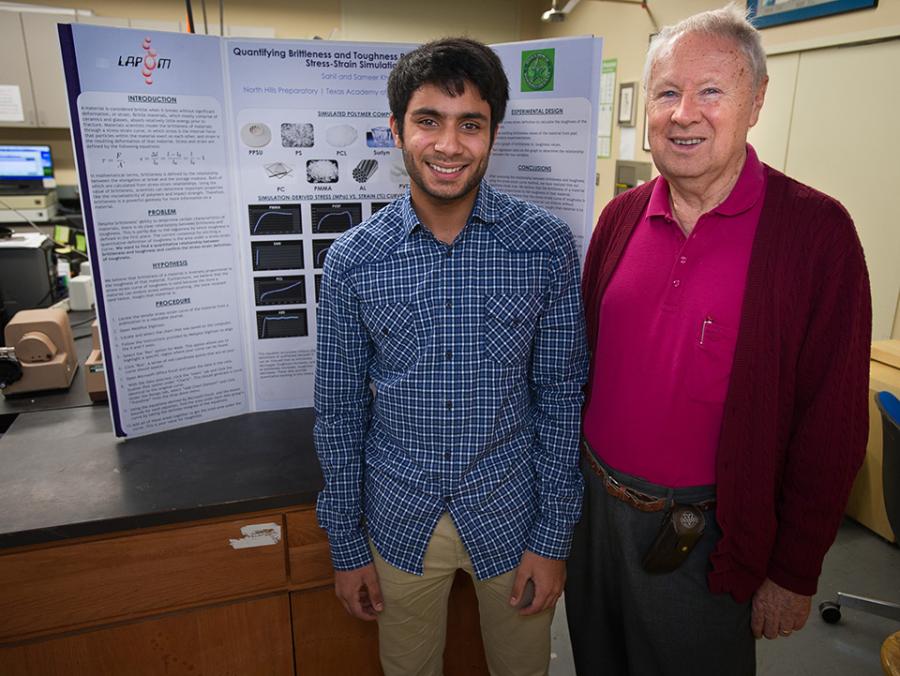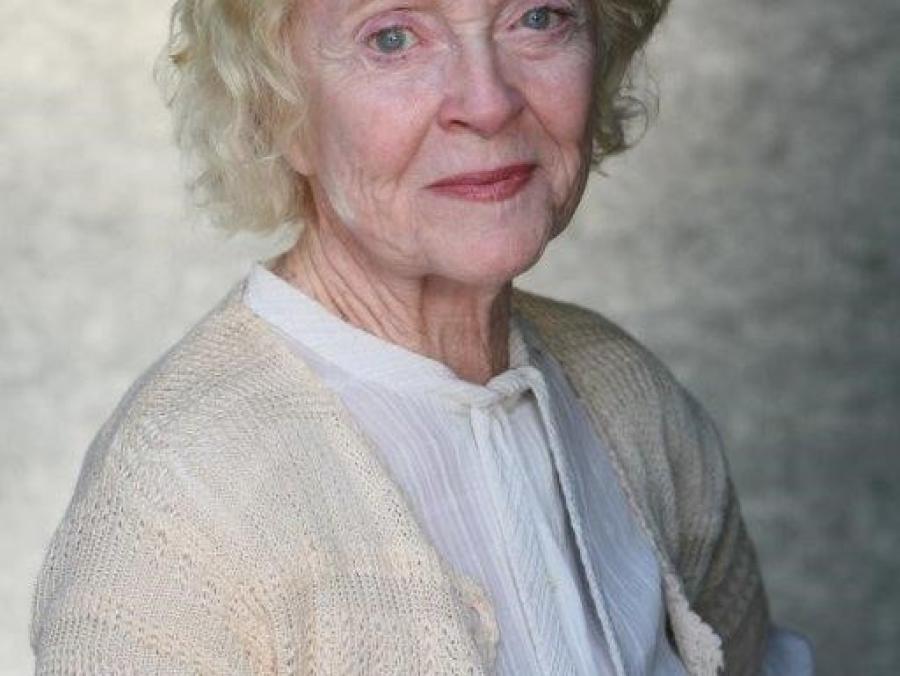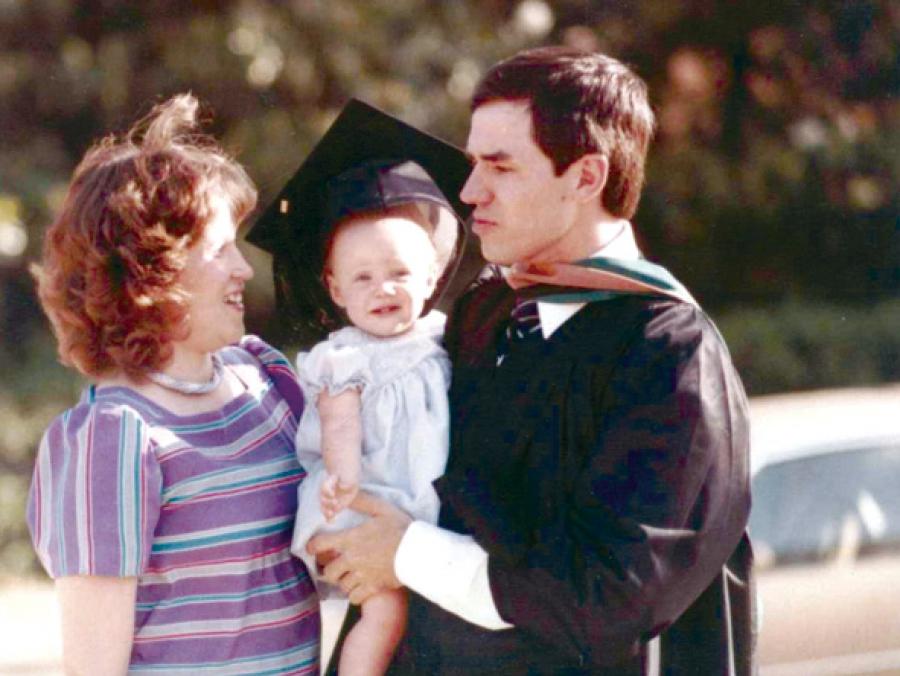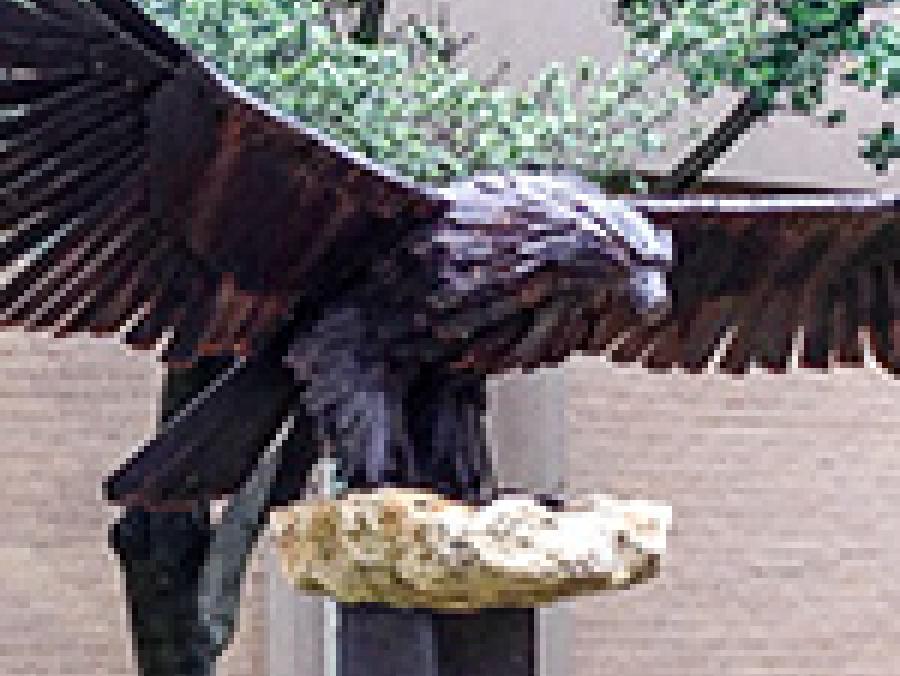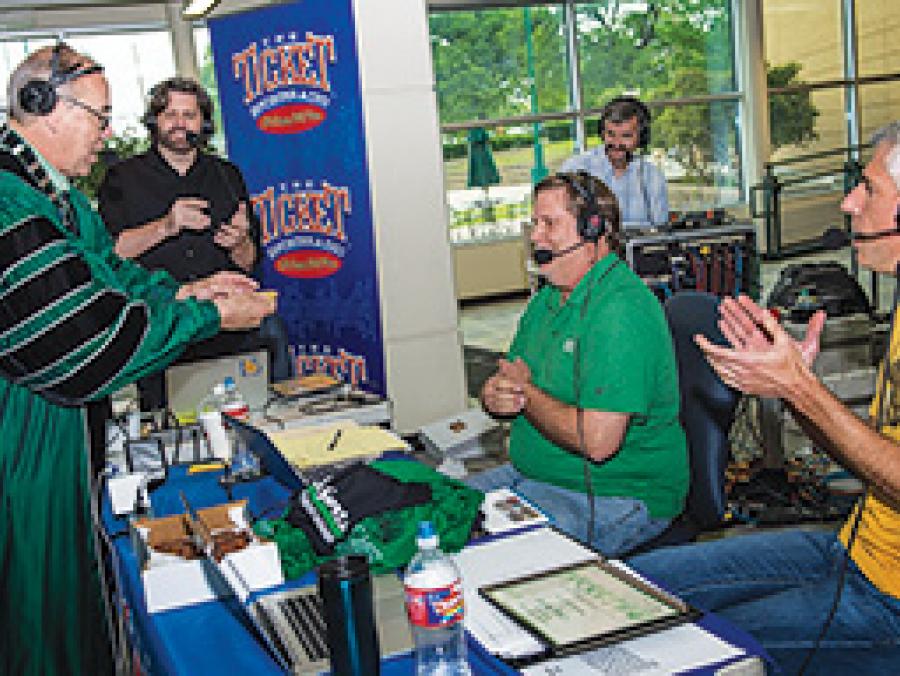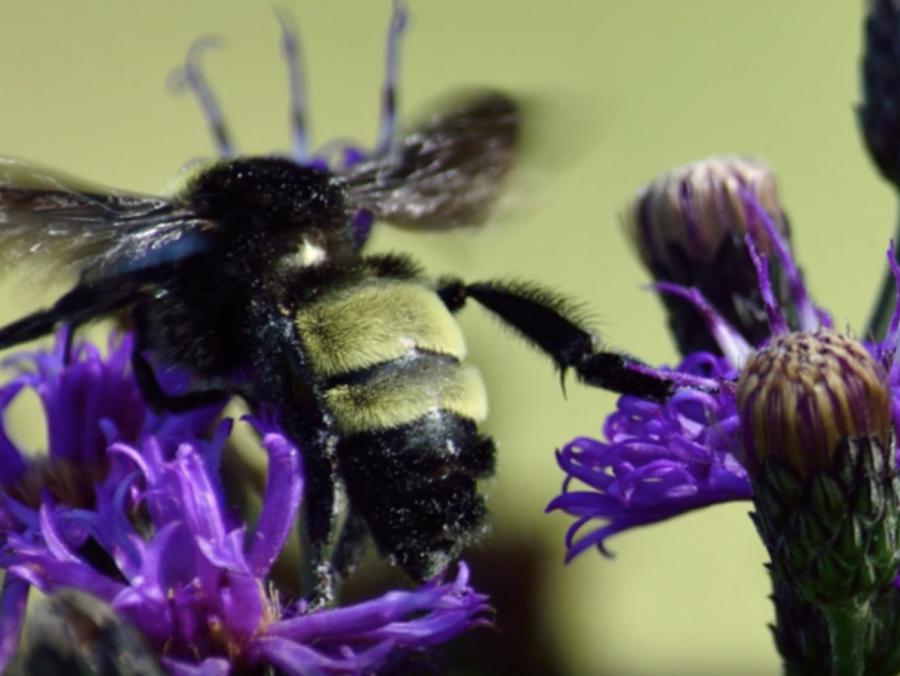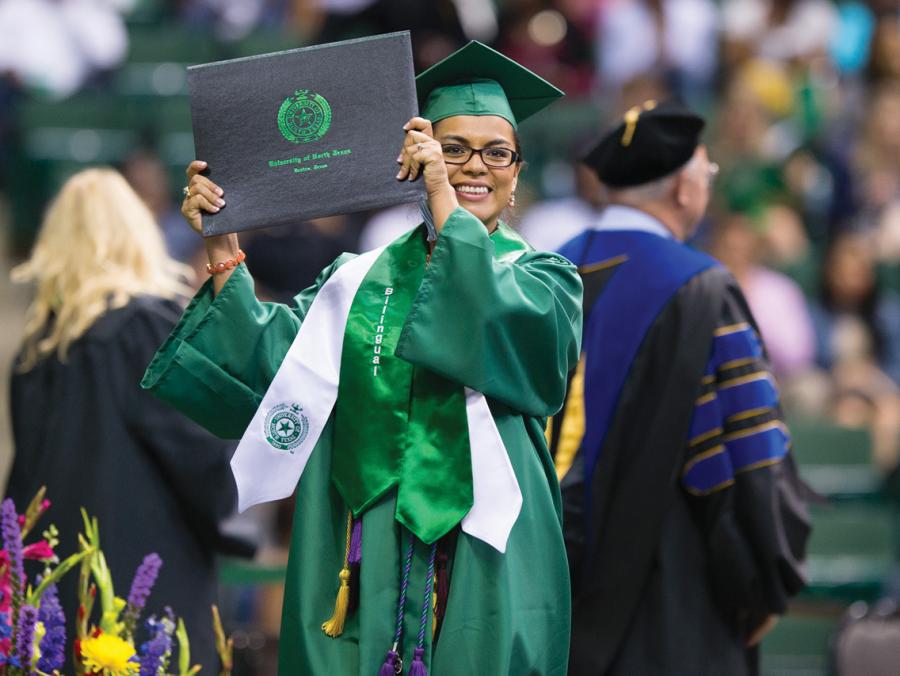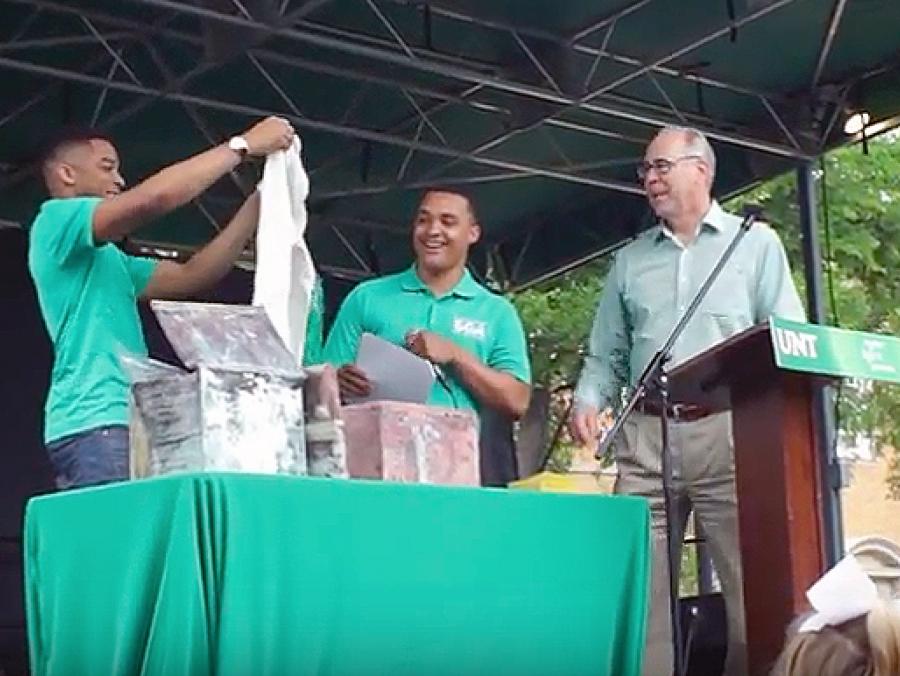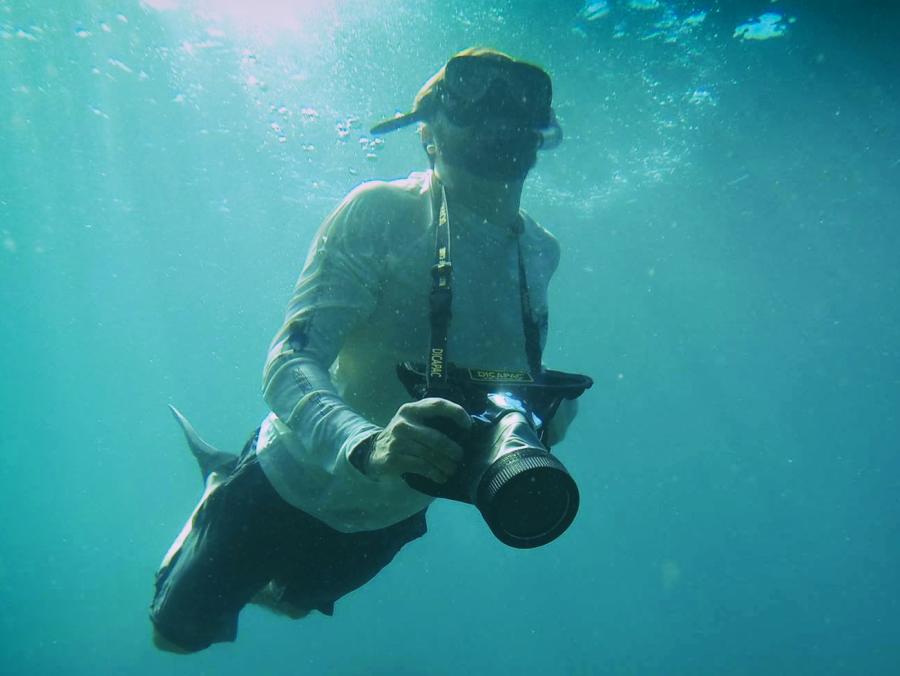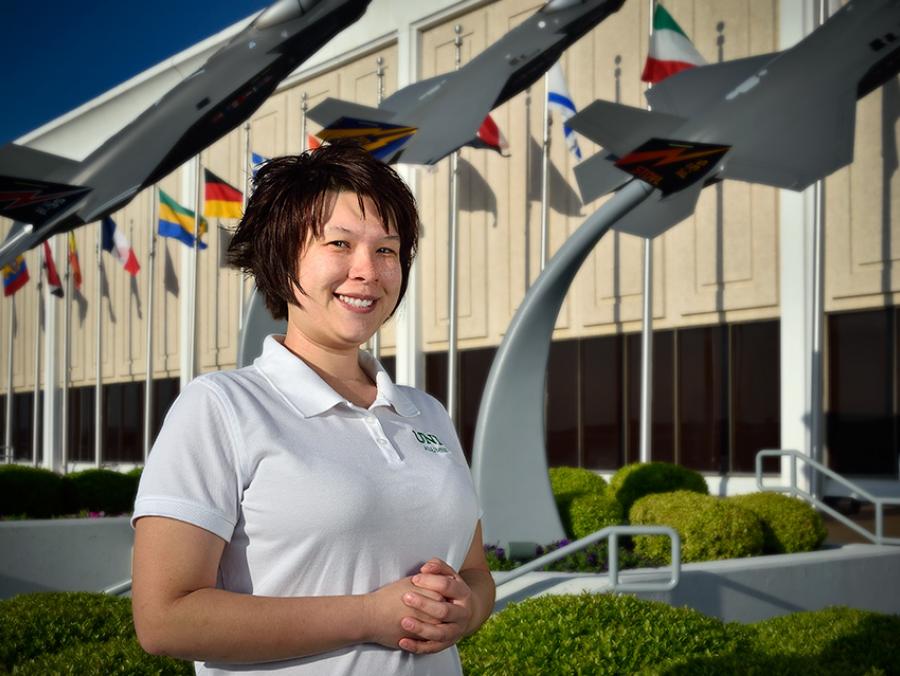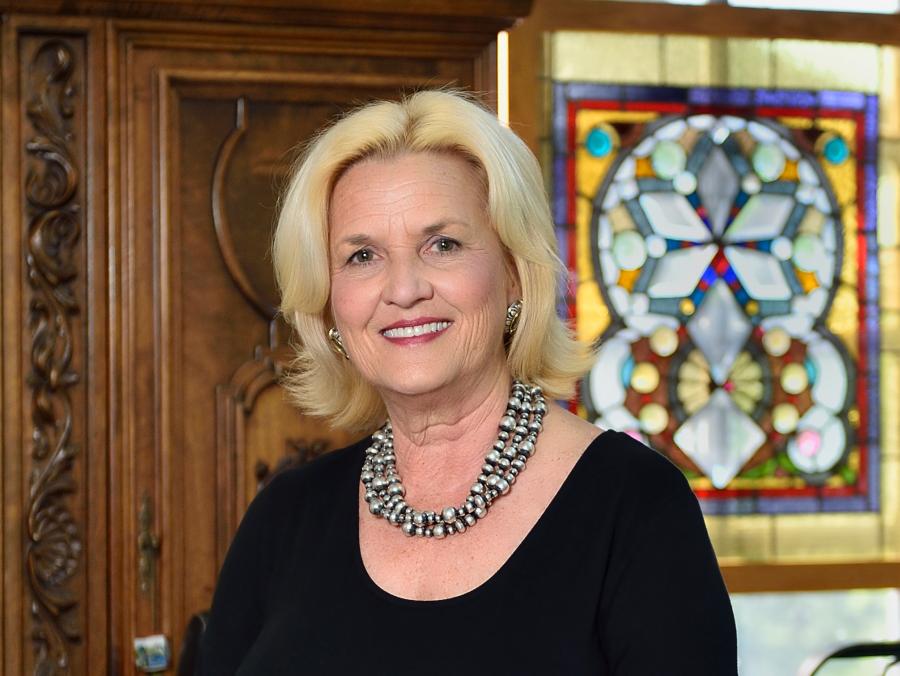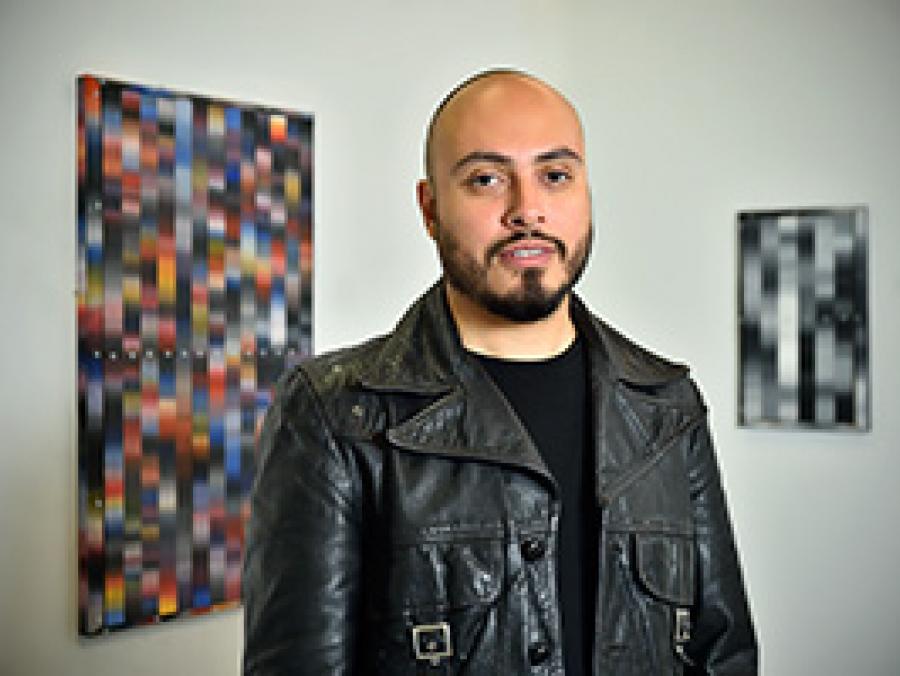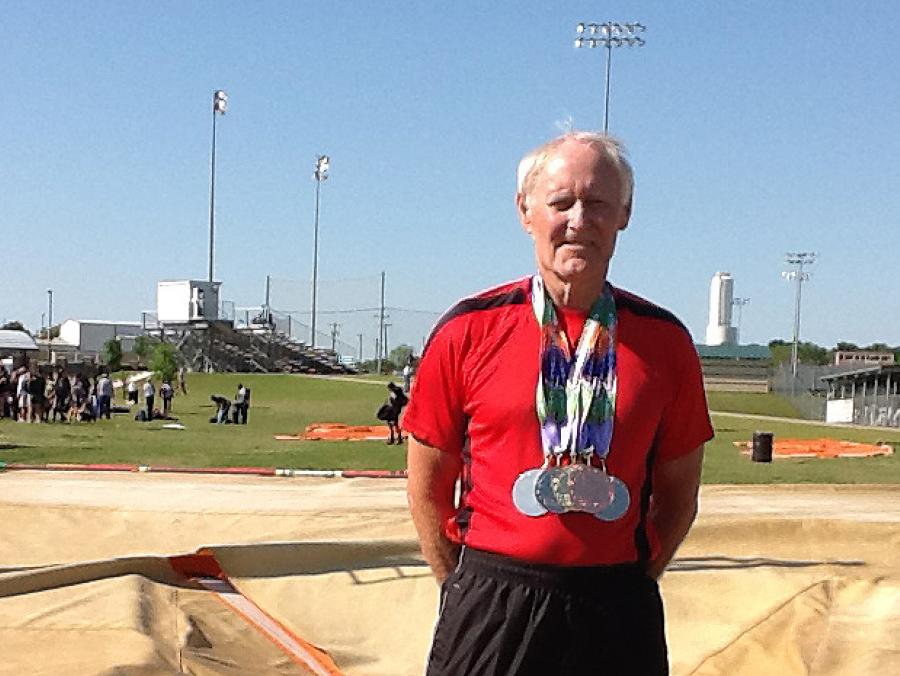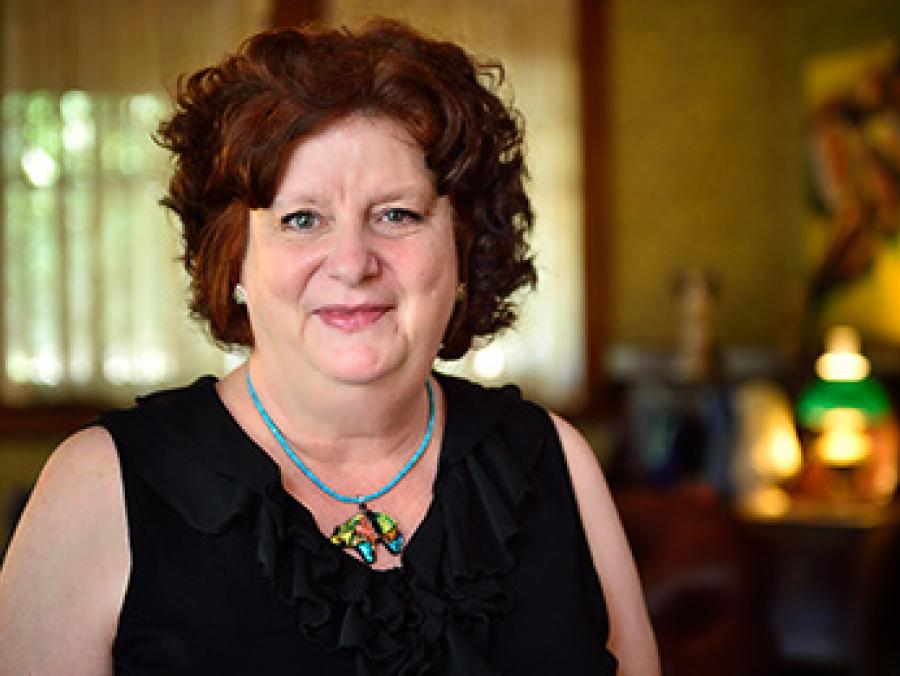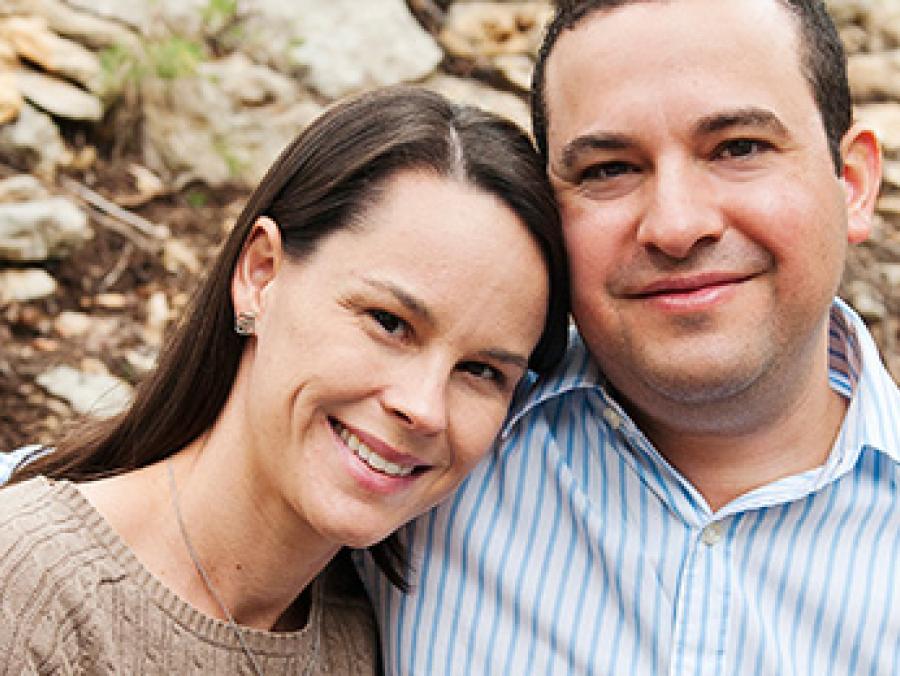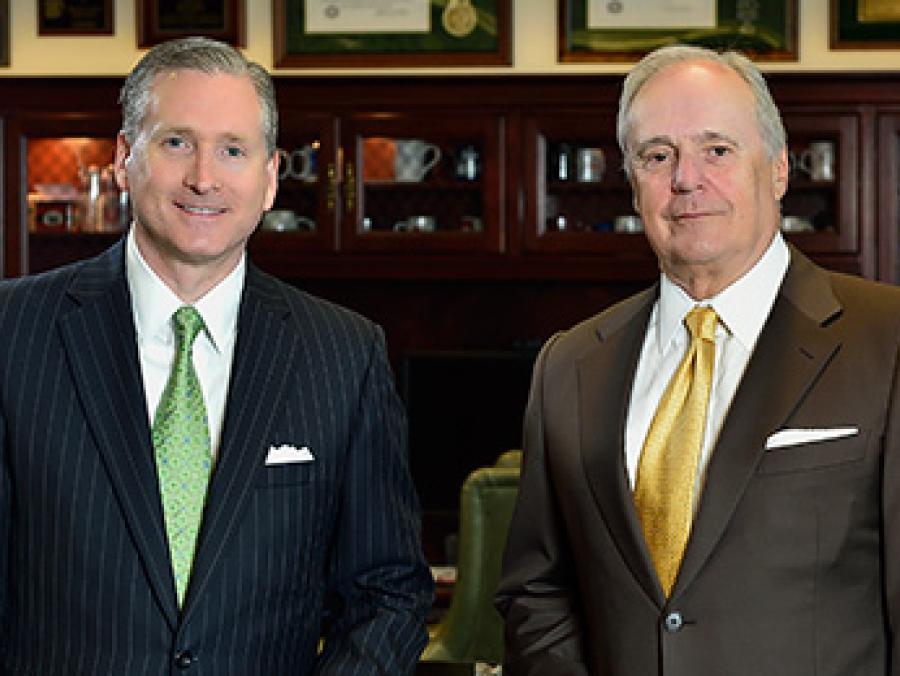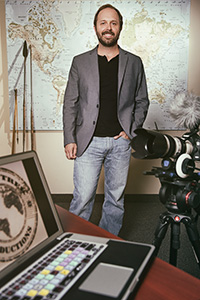 Casey Carr ('01) knows the impact that travel can have on people's lives. As a general manager of his family's travel agency and award-winning film-maker for the cruise and tour industry, he connects people to places on their bucket lists ranging from weekend escapes and family vacations to soul-seeking adventures.
Casey Carr ('01) knows the impact that travel can have on people's lives. As a general manager of his family's travel agency and award-winning film-maker for the cruise and tour industry, he connects people to places on their bucket lists ranging from weekend escapes and family vacations to soul-seeking adventures.
He has journeyed to and filmed on all seven continents, including Antarctica, and the Arctic Circle. In 2012, he organized a unique journey to Vietnam and Cambodia, trekking along with several Vietnam vets -- men who had not been back since the war ended 40 years earlier.
"It was a very emotional trip for them," Carr says.
The group visited the Cu Chi tunnels in Ho Chi Minh City, site of the Viet Cong's base of operations for the 1968 Tet Offensive.
"We sat and listened to a Viet Cong vet tell his side of the war through an interpreter," Carr says, adding that it brought a sense of peace. "At the end, our vets hugged and cried and shook hands with him. It was a pretty powerful moment, and from that point on, those guys seemed a little bit lighter, like they had let go of something."
Carr is just one of many UNT alumni working in tourism and hospitality careers helping to shape traveler's specialized experiences. The industry supported more than 100 million jobs worldwide and 8.1 million direct jobs in the U.S. during 2013, according to the U.S. Travel Association and World Travel and Tourism Council.
While a large number of graduates of UNT's hospitality and tourism management bachelor's and master's degree programs seek careers at resort, hotel and restaurant brands, alumni from disciplines such as business, history and journalism also work in the industry as tour guides, filmmakers and travel writers.
And since 2012, graduates of MIST -- a joint master's degree program in international sustainable tourism that is the first of its kind in the U.S. -- have worked in sustainable tourism. The graduates of this joint program between UNT and CATIE, the Tropical Agricultural Research and Higher Education Center in Turrialba, Cartago, Costa Rica, are ensuring that travel to fragile, pristine and, often, environmentally protected areas is low impact and on a sustainable scale.
Students are engaging in the management of intangible services, which is vastly different from managing a product manufactured by a company, says Daniel Spears, UNT associate professor of hospitality and tourism management and director of the MIST program.
"We don't have inventory, so how we assess quality in the travel and tourism field is through experiences," he says. "The nature of our industry is people, and understanding the industry as a whole is vital for our success."
Family business
Carr grew up in the tourism industry after his father began Sharon Carr Travel in Dallas in 1969. Carr and his older sister started traveling with their parents when they were still infants. Thinking he would someday work in travel himself, he began studies at UNT as a business major, but he was drawn to history.
"I had been exposed to so many different cultures and historical sites while growing up," he says.
Carr was a captain on both the intramural hockey and lacrosse teams at UNT. Just after graduating, he spent nine months traveling through the U.S., Canada and Mexico with a friend, and then worked briefly for Cruise West in Seattle and for Carnival Cruise Lines before returning to Dallas to work with his family.
The company contracts with CBS Radio in Dallas and radio stations in Atlanta, Houston, Phoenix and other markets to offer vacation packages and cruises, serving about 5,000 radio listeners each year. Carr, who leads group tours to Africa, Asia, Europe, South America and other destinations, hosts the KLUV World Tour on the station's Jody Dean Morning Show.
"It's a lot of work to coordinate all of the reservations and activities for a huge group, but it's so fulfilling when we get to be there to see our customers' experiences," he says. "Some clients bring postcards with them that their grandparents sent years ago from their native country, and now they're finally getting to go."
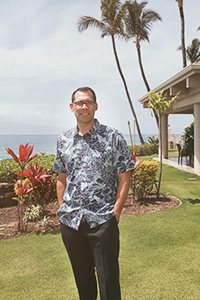 Jansen Medeiros ('14 M.S., '14 M.B.A.), a native of Maui and managing director of Hawaiian Hotels and Resorts there, also grew up with tourism as a family business. His parents and grandmother worked at resorts in the Ka'anapali Beach area. As a child, Medeiros was at his parents' workplace almost daily during the summer and weekly during the school year.
Jansen Medeiros ('14 M.S., '14 M.B.A.), a native of Maui and managing director of Hawaiian Hotels and Resorts there, also grew up with tourism as a family business. His parents and grandmother worked at resorts in the Ka'anapali Beach area. As a child, Medeiros was at his parents' workplace almost daily during the summer and weekly during the school year.
"I wasn't alone. Many of my friends' parents also worked at the resorts," he says. "In the summer, I'd ride my bike to Ka'anapali in the morning, then meet my dad for a ride home during the afternoon. I always had an interest in the business."
Medeiros served in the Hawaii Air National Guard and earned a bachelor's degree in management online before working in information technology for Royal Lahaina Resort, one of Hawaiian Hotels and Resorts' four properties. After meeting his wife, Kellie, a Fort Worth native, Medeiros decided to move to Fort Worth and attend graduate school at UNT.
"A master's degree was always part of what I wanted to achieve," says Medeiros, who earned master's degrees in hospitality management and in business administration.
Not long after Medeiros entered the M.B.A. program, real estate professor John Baen connected him to UNT alumni who were executives for Prism Hotels and Resorts in Dallas. Medeiros worked for the hotel management, investment and advisory services company during the rest of his time at UNT.
At Hawaiian Hotels and Resorts, a family-owned company that focuses on providing authentic island culture, Medeiros says he makes it a point to attend weekly guest receptions showcasing Hawaiian food and entertainment and employee training sessions for providing traditional island hospitality.
"I enjoy observing how our guests interact with our associates and use our services," he says, adding that the more he learns, the better the staff can respond to guests' needs.
"We want to provide them with a one-of-a-kind experience."
Destination trips
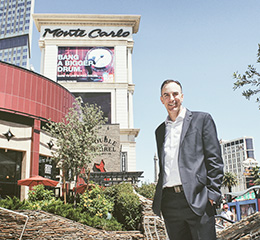 Mike Pistana ('93) also strives to create a special experience for visitors to Monte Carlo Resort and Casino in Las Vegas. As vice president of sales, he books and oversees accommodations for more than 500 conventions, tour groups and others each year, including meeting space and hotel rooms. He also serves on Monte Carlo's executive committee, helping with daily operations.
Mike Pistana ('93) also strives to create a special experience for visitors to Monte Carlo Resort and Casino in Las Vegas. As vice president of sales, he books and oversees accommodations for more than 500 conventions, tour groups and others each year, including meeting space and hotel rooms. He also serves on Monte Carlo's executive committee, helping with daily operations.
"It's fast-paced action 24 hours a day. I love being part of that," he says. "The Monte Carlo has 3,000 rooms, so we could have 10,000 people in the building on a day."
Pistana meets with convention and tour planners at least a year in advance, working with them and the hotel's staff on everything from audiovisual services to floral arrangements and banquets. He also provides options for activities in the resort, including entertainment and meals at the eight on-site restaurants.
"The reward is knowing that a group had a successful stay," he says, noting that his staff goes the extra mile, often forming welcoming lines, greeting customers and thanking them for their stay. "We have a lot of repeat business. It's also great to hear about feedback given to employees by the planners."
Pistana came to UNT on a basketball scholarship, playing small forward. He chose to study hospitality management after growing up in a tourist area -- Daytona Beach, Fla.
His uncle, an executive with American Airlines, also steered him toward the industry. A year before he graduated, Pistana landed a summer internship with the Golden Nugget Las Vegas after his uncle introduced him to contacts at the resort and casino. The opportunity led to a full- time job after graduation at the property, which at the time was owned by MGM Resorts International.
Pistana has since spent his career with other MGM properties -- the Bellagio Las Vegas as well as Monte Carlo. His wife, Andrea Bresler Pistana ('94), also has a hospitality degree and worked for MGM until she became a stay-at-home mom.
The Pistanas left Las Vegas for five years when Mike was hired for the pre-opening team of MGM's Beau Rivage Resort and Casino in Biloxi, Miss. It was the largest casino and hotel outside of Nevada, and one of the most expensive to be built, when it opened in 1999.
"It's a mini Bellagio," says Pistana, who adds that it was difficult at first to book conventions and other groups for a hotel that didn't have a major airport nearby, was located in an area that had never had a four-star resort, and needed 3,000 employees trained in four-star-level service.
"The pre-opening team's goal was to make the Beau Rivage a destination, but people weren't used to paying higher hotel rates," he says, recalling the challenge of getting them in the door the first time with special incentives and discounts. "The first year was a little rough. I really learned to hone my sales skills."
Pistana notes Beau Rivage has since been "incredibly successful," with rebookings and repeat business even after being damaged by Hurricane Katrina in 2005 and closing for a year.
Niche travel
 Elaine Nunn Schoch ('99) writes about specialized travel experiences for Carpe Travel, a blog she founded and edits. Schoch, who graduated with a journalism degree, says her readers expect exceptional value for the money they spend.
Elaine Nunn Schoch ('99) writes about specialized travel experiences for Carpe Travel, a blog she founded and edits. Schoch, who graduated with a journalism degree, says her readers expect exceptional value for the money they spend.
"They want to go to luxury hotels or stay at a nice resort, but they still want prices that are friendly for their budgets," she says.
Carpe Travel is a second career for Schoch, a Denver resident who worked in public relations and marketing for technology companies for more than 10 years. While she often traveled for business, she didn't do a lot of vacation travel until her father died suddenly at age 53.
"My dad had planned to travel the world after retirement, but he never got to," she says. "So, I made my own bucket list and started making it happen."
Traveling first on her own, then with her husband and two young daughters, Schoch has visited Brazil, Canada, Italy, Mexico and Russia as well as many parts of the U.S. She says Carpe Travel started as a hobby.
"I was traveling a lot when I first left the corporate world and began public relations work as a consultant. The world was literally my office," Schoch says. "I decided I would write about my travels and share photos on a blog to update the family on what we were doing and seeing. When I saw the potential business opportunities, I shifted gears and put more focus on taking the blog to the next level."
She writes about two specific types of travel -- wine-related travel and value luxury travel with children, based on her personal experiences.
Schoch recalls a trip to San Juan, Puerto Rico, where she and her daughters met family friends. Her daughters spoke little Spanish and her friends' children spoke little English.
"Within five minutes of reaching the beach house, the kids were in the backyard playing chase," she says, adding that children have a built-in tolerance for those who are different than they are. "Language didn't matter and the color of their skin was not important. All they knew was that they had an amazing time and made new friends."
Both children and adults should travel to become more respectful of different cultures and traditions and experience them outside of textbooks, magazines and travel blogs, Schoch says.
"That doesn't mean you have to go to India, Russia, Italy or another country," she says. "It can be going from Denton to New York City."
On Carpe Travel, Schoch shares tips and reviews of destinations as well as travel products, hotels and restaurants. She reaches out to specific brands and also is contacted by companies to advertise on the blog.
"The power of word-of-mouth marketing from online influences can be better than gold for the travel industry," says Schoch, whose long-term goal is to make the blog a full online travel magazine. "This audience is one that's loyal and trusts the influencer they're reading."
Sustainable tourism
 A part of the world that has only recently embraced tourism is the focus of Kristina Blahová ('13 M.S.), who leads tours in the Galápagos Islands west of Ecuador.
A part of the world that has only recently embraced tourism is the focus of Kristina Blahová ('13 M.S.), who leads tours in the Galápagos Islands west of Ecuador.
After receiving her master's degree in international sustainable tourism from UNT's MIST program, Blahová went to Santa Cruz Island in the Galápagos to volunteer with the Foundation for Alternative Responsible Development. The nonprofit organization created the Pájaro Brujo Reserve and offers volunteer projects in organic agriculture, ecological restoration, environmental education and other areas.
Blahová volunteered for three months at the reserve, leading high school and university groups on tours, before being hired as the foundation's volunteer coordinator. She now gives private tours of Santa Cruz and also teaches English as a second language. Blahová, whose native language is Czech, learned English and Spanish at a young age and traveled to other nations in Europe, the Middle East and North Africa.
She became interested in sustainable tourism on a scuba diving trip in Egypt, years prior to enrolling in UNT's joint master's program in the field.
"I saw the immense impact of mass tourism on the marine environment and also the local culture, including damaged coral reefs, a depleted and vulnerable Red Sea ecosystem, pollution and degradation of cultural and social values," Blahová says. "UNT's MIST program opened a whole new way of thinking for me and of looking at the world and its issues."
As part of the program, Blahová studied for a year at CATIE in Costa Rica, and knew she wanted to find a job in Latin America to explore more of its nature and culture.
"I decided on the Galápagos because of its unique history, endemic species of animals and plants, and issues associated with population growth and the increase of uncontrolled tourism to the islands," she says.
Annual tourist numbers in the Galápagos soared from less than 50,000 in 1991 to more than 180,000 in 2012, leading to one of the islands' two airports being renovated for larger planes.
Blahová, who hopes to start her own sustainable travel business in South America, reminds her English students and foundation volunteers about the value of ecotourism.
"It's important for travelers to be responsible for decisions that may have an impact not only on them," she says, "but also on other people, animals and nature."




